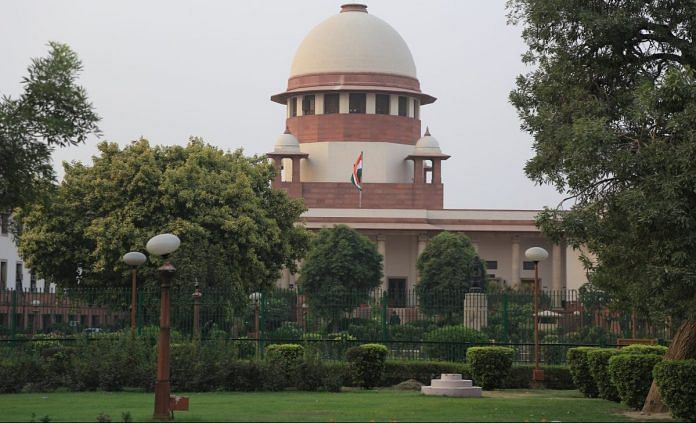A year after SC order, only 9 states & UTs respond — some submit vague replies, showing lack of initiatives to implement guidelines.
New Delhi: More than a year after the Supreme Court sought responses from all states and union territories on the rehabilitation of people who have been cured of mental illness, little has been done for their benefit, ThePrint has learnt.
Only nine states and UTs have submitted reports on the matter. And, some of them have submitted vague and non-substantive responses, which show lack of initiatives to implement central guidelines.
The states and UTs that have replied so far include Nagaland, Punjab, West Bengal, Telangana, Tamil Nadu, Meghalaya, Gujarat, Puducherry and Andaman and Nicobar Islands.
Also Read: Three Bengaluru institutions announce largest joint mental health study in India
The case
In February last year, the apex court had asked the Central government to form a policy to deal with patients who continued to stay in asylums even after being cured of mental illness.
The order came on lawyer Gaurav Kumar Bansal’s PIL seeking the release of 300 people in various mental hospitals in Uttar Pradesh in 2017.
Subsequently, a committee was formed by the department of empowerment of persons with disabilities, ministry of social justice and empowerment, which suggested guidelines to be followed by states.
The SC then asked the state governments and union territories to begin implementing them at the earliest and submit status reports latest by 1 August, 2018.
Guidelines not fully implemented
The guidelines suggested by the committee included steps required for the “relocation, reintegration and rehabilitation” of people who had recovered from mental illness but continued to stay in institutions because of homelessness or because their families refused to take them back.
The committee also recommended the setting up of “one or two” rehabilitation homes in each of the cities where a mental health institution was located within two years. The recommendations also talked of details about physical infrastructure and human resources required to run these homes.
Report from states
Some of the reports submitted by states, however, show that little has been done to implement these guidelines. For instance, the status report for Meghalaya, accessed by ThePrint, only mentions that a charitable trust, SAN-KER, has expressed “willingness” to set up a halfway home.
Similarly, the report submitted by Tamil Nadu does not show any follow-up action on the guidelines. It just mentions that if mentally ill people are “found wandering in the streets”, they are taken to rehabilitation homes.
It further says that the state has homes run by “reputed” NGOs for patients with “mild mental sickness” and the people who have been cured can also be housed there. It also refers to the setting up “emergency care and recovery centres”.
In states such as Maharashtra, which have not submitted their reports yet, it seems that the government wasn’t even aware of the SC directive.
“We have not received any instructions…the government has probably not received (instructions) from the central government that’s why we didn’t file an affidavit,” Ruchesh Jaivanshi, commissioner (disability) in social justice and special assistance department, Maharashtra, told ThePrint.
“We haven’t started anything, but this kind of an institution has already been proposed. In the next six months we will have at least five shelter homes,” Jaivanshi added.
The official said the Maharashtra government conducts “rehab workshops for people who are more than 18 years old and have sufficient IQ”.
Also read: UP encounters: A thug who was ‘mentally unstable & begging’, a ‘rushed’ midnight cremation
Former patients continue to suffer
Meanwhile, approximately 10,000 people continue to stay in mental hospitals even after being cured, according to the committee.
It had noted that “long stay patients” (LSP) continue to “occupy beds in the hospitals; but also get deprived of their human rights”. It has called for providing a home-like atmosphere, away from the “custodial mental settings” for such people.
“Family support is not available, so in the wake of that to be incarcerated even after being cured is a violation of basic fundamental rights. Such people can become extremely depressed, morose and it is detrimental to their mental well-being,” said Deepak Raheja, physiatrist and director at Hope Care, a mental wellness organisation.
“It does not serve the essence of what the guidelines say and violates their purpose. The whole point is freedom. Rehabilitation means incorporation into the society,” he added.
Bansal, the petitioner, said the need of the hour is to establish halfway homes as directed by the Supreme Court.
“The Supreme Court order is for the benefit of 12,000-15,000 people who, for no fault of theirs, are forced to live in mental hospitals. Government’s late response shows the lack of sensitiveness towards these people. This has to stop,” Bansal added.



